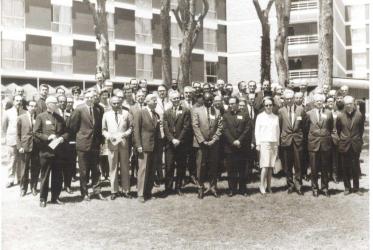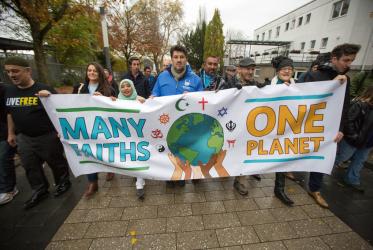Displaying 1 - 20 of 20
Ecumenical young trailblazers
15 August 2019
COP 23 “debriefing” brings faith and ethical perspectives
23 January 2018
Tveit to World Economic Forum: “Say no to nuclear weapons”
22 January 2018
An interview with the Ethiopian Patriarch, Abune Matthias
14 February 2017
Religion: Friend or Foe of the Common Good?
16 February 2016
Thomas de Maizière: On the frontlines of refugee integration
20 January 2016
Climate pilgrimage toward COP21 pauses in Geneva
05 November 2015






